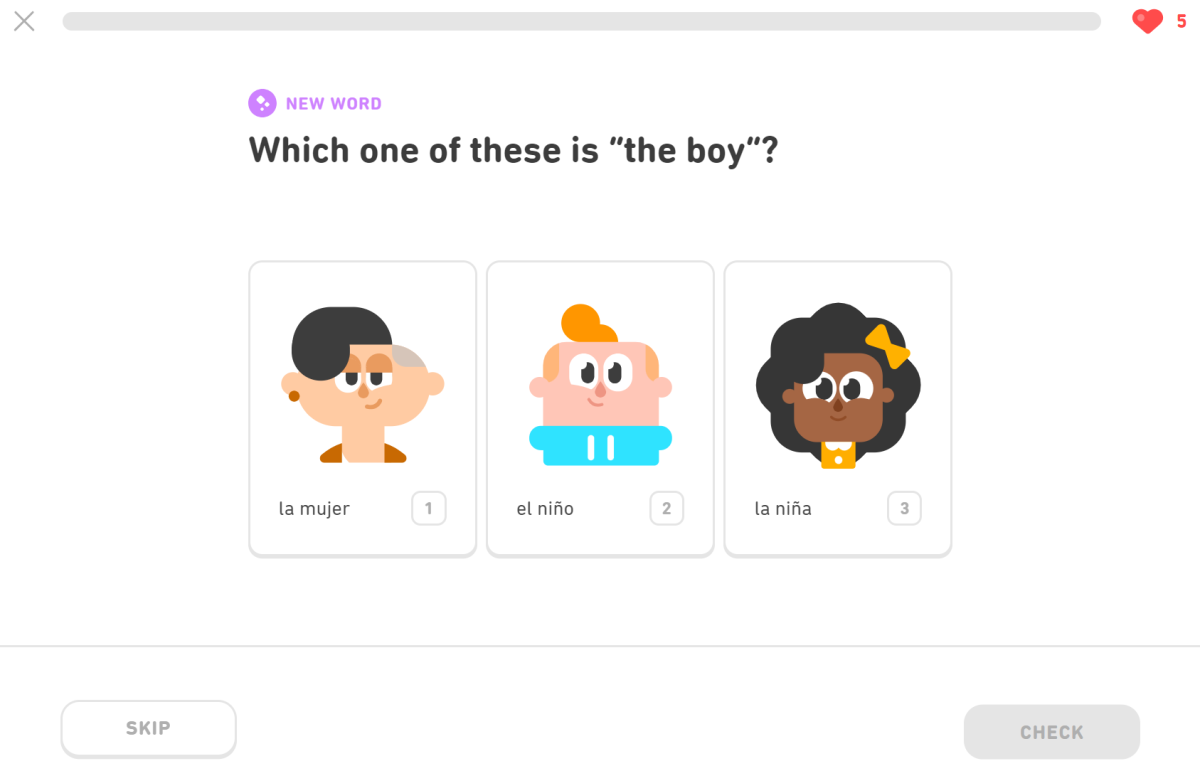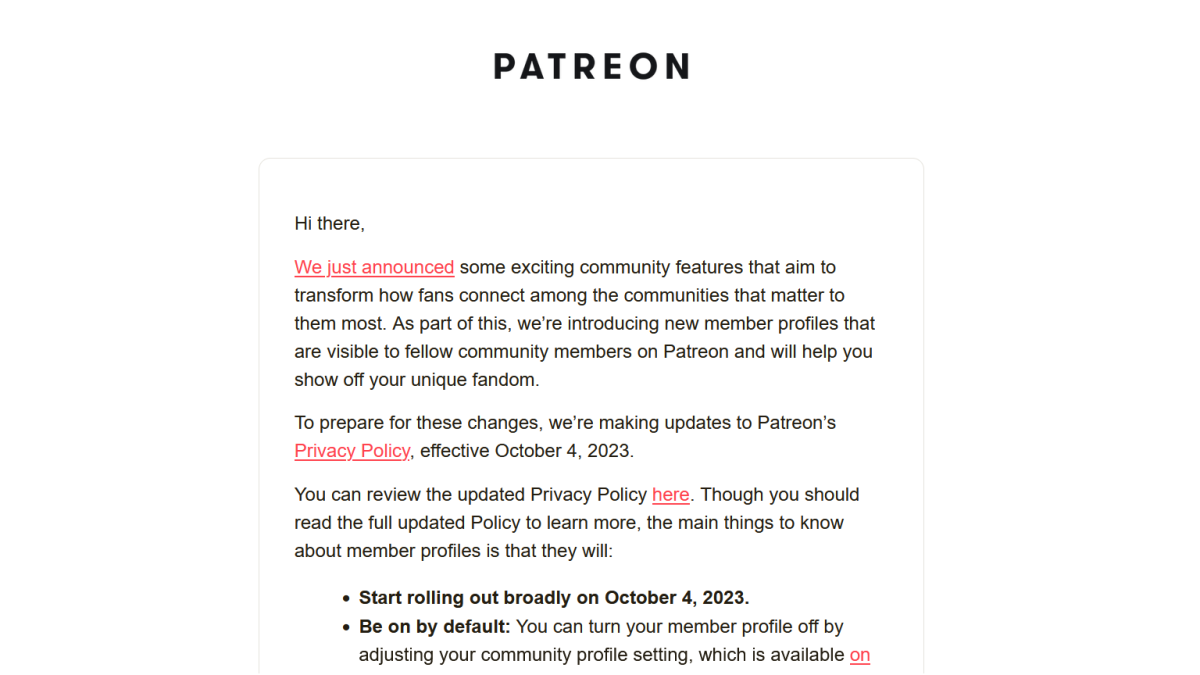
 Image: Glenn Carstens Peters / Unsplash
Image: Glenn Carstens Peters / Unsplash
Let me ask you: When you receive an email with the subject line, “Updates to our privacy policy,” do you open it right away? My guess is the answer is no.
I’ll confess—I don’t always open those messages immediately, either. But when such an email from Patreon hit my inbox recently, I read it instantly. I hadn’t even intended to, since I was in the middle of something else. I suspect I subconsciously processed this key phrase from the message preview: “…community features that transform how fans connect.”
You don’t have to be anti-social to be suspicious of any company wanting to build a community. And yes, I’m pretty wary. Often this push has been synonymous with ignoring people’s expectation of privacy, though usually not in a malicious way. Still, there are real-world consequences, given how easily data is lost or stolen these days. A recent example: Duolingo, which had info from over 2 million accounts scraped from the site that included real names, addresses, phone numbers, and location. It was enough information to prompt warnings from security experts about potential phishing attempts down the road.

After the news made the rounds, Duolingo reached out to emphasize the scraped details were public to begin with. But the company chose to include that information in a profile…and making profiles public by default.
Duolingo’s not unique in this regard, either. I’ve lost track of how often I’ve signed up for an account somewhere and had to immediately set my profile private. Which is exactly what I had done for Patreon, because its public profiles show your name, avatar image, date joined, and active memberships among other details.
But this latest email from Patreon enthusiastically informed me of a fresh mole to whack in this game of online privacy: It had launched community profiles, which not only show more info, but could eventually show information like purchases made. And this new type of profile was visible by default, even if your public profile was already manually turned off.
It’s been a long time since I’ve logged into a site so quickly to flip a switch like that. Sure, I was in no immediate danger, but I’d reached the end of my patience with companies thinking everything must be social.

PCWorld
PCWorld
PCWorld
So much information can be mined from public profiles—and these days, that data is used to hack other accounts, commit identity theft, stalk, and engage in other dirty deeds. Don’t get me wrong: I get the need for community, and that it’s truly enjoyable for some people to be visible in the spaces they occupy. What I’m disgruntled about is the fact that companies apply an opt out policy to their policies, rather than opt in, and they often don’t give granular control over each detail in a profile either.
Companies who want to foster community should be making them as accommodating of people who guard their privacy as those who don’t. Why would I participate in anything where I don’t feel comfortable? Ideally, they should also take into account online safety, too. I’d prefer to see public profiles be opt in for that reason alone. Moreover, in situations where the default is opt out and a user has gone through the trouble of setting their profile private, that should be the baseline privacy setting for the account. Any other profiles that follow or new sharable details should follow it.
Right now, a lot of websites act like that friend who always shares your phone number with anyone who asks, never bothering to check first if you were okay with it. Or worse, that subtype of extrovert who has absolutely no concept of other people not wanting to be part of a group activity. Not everyone needs to be in the center of the action to enjoy being around other people, my dude.

Discord
Discord
Discord
The Patreon situation is particularly annoying because money is involved. If I’m paying to support a creator, that should be the end of it. If I don’t want to be public about it, don’t force it. And let’s also be real here: If I have a creator I’m supporting, I’m not going to be hanging out on the Patreon site to engage with other community members. I’m going to be in their Discord server.
People have so many ways to engage with like-minded people. Sites that add community features and then force public participation are just driving people away—and ticking some of them off in the process. It’s like they forget that if I want to support a streamer, learn a language, or connect with friends, I can always find an alternative service that lets me do so these days.
Author: Alaina Yee, Senior Editor

Alaina Yee is PCWorld’s resident bargain hunter—when she’s not covering software, PC building, and more, she’s scouring for the best tech deals. Previously her work has appeared in PC Gamer, IGN, Maximum PC, and Official Xbox Magazine. You can find her on Twitter at @morphingball.
Recent stories by Alaina Yee:
AVG Internet Security review: Reliable, budget-friendly antivirus softwareWorried your inactive Google Account might get deleted? Log in nowBlack Friday 2023: How to get the best prices on tech, and where to shop



